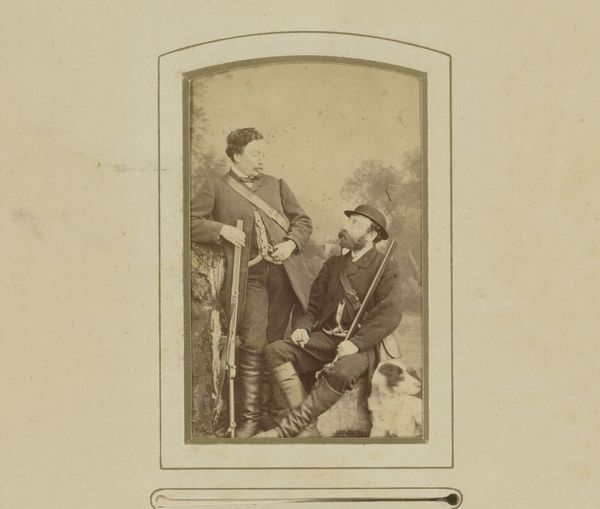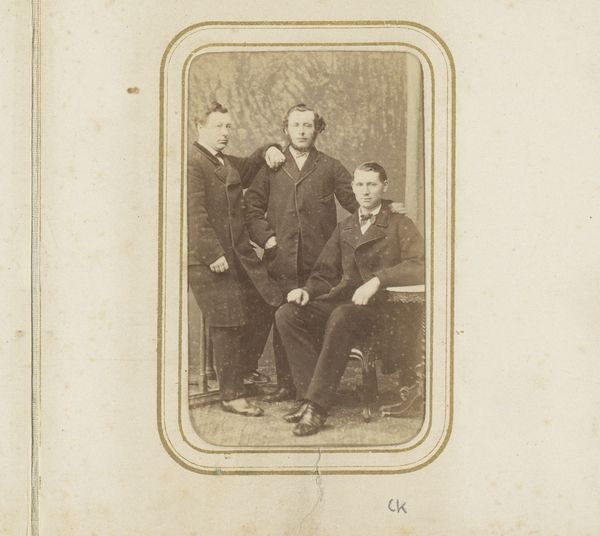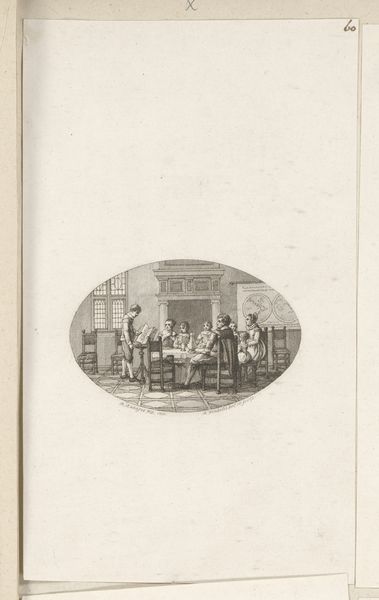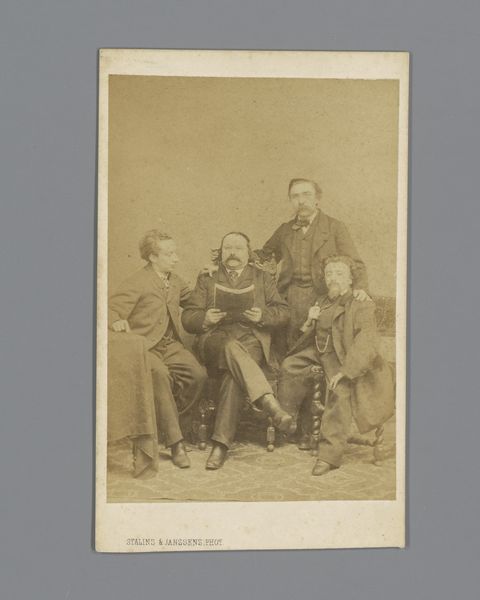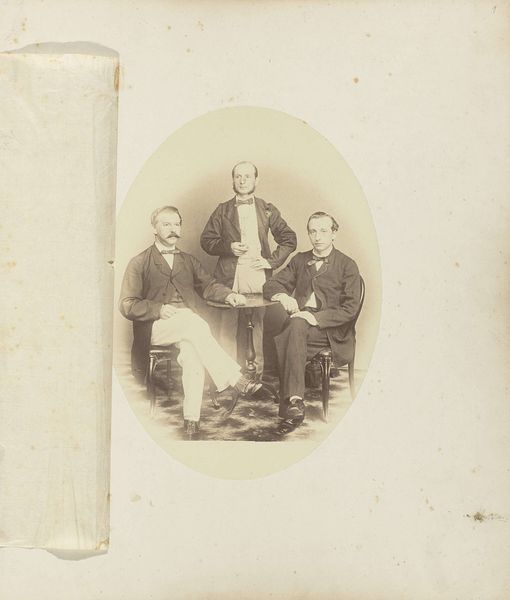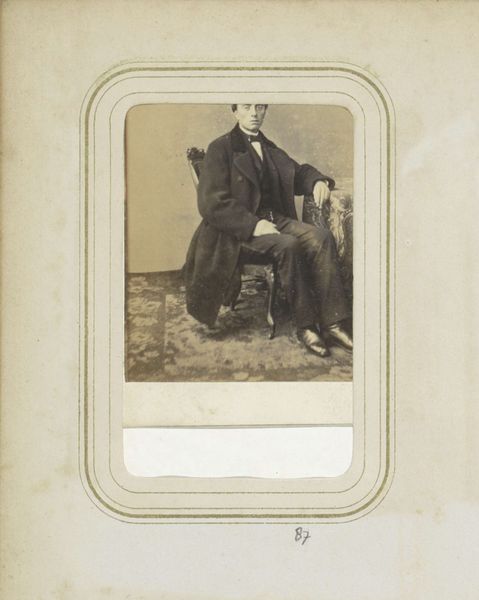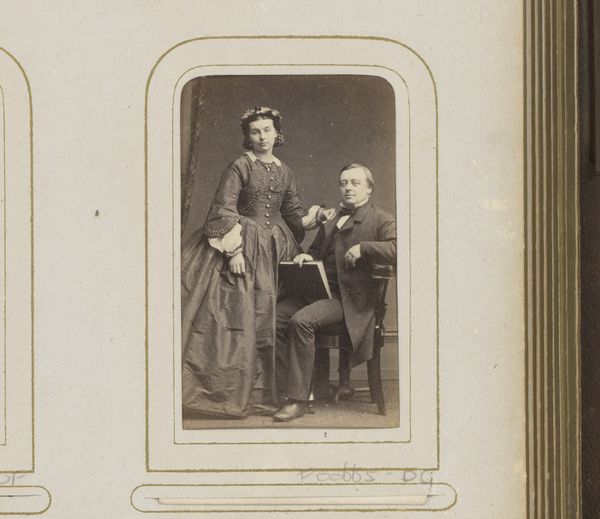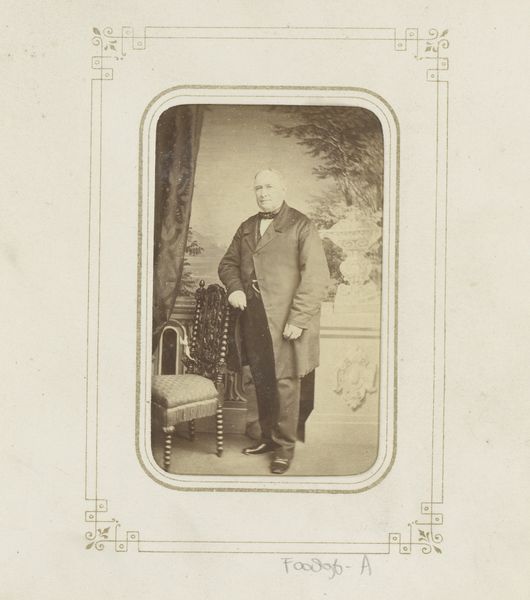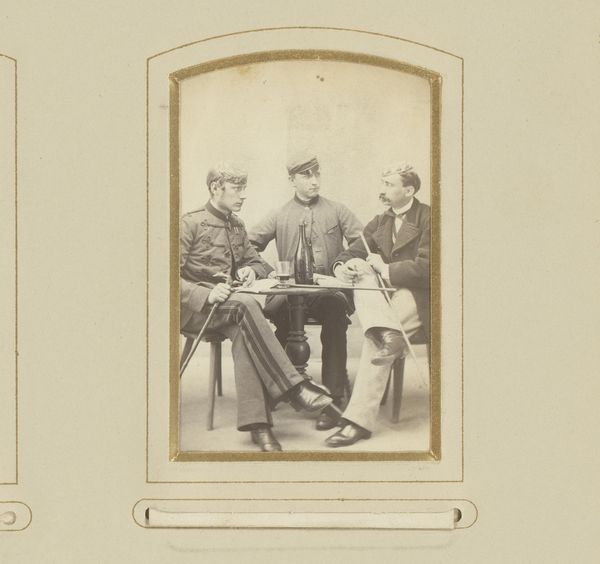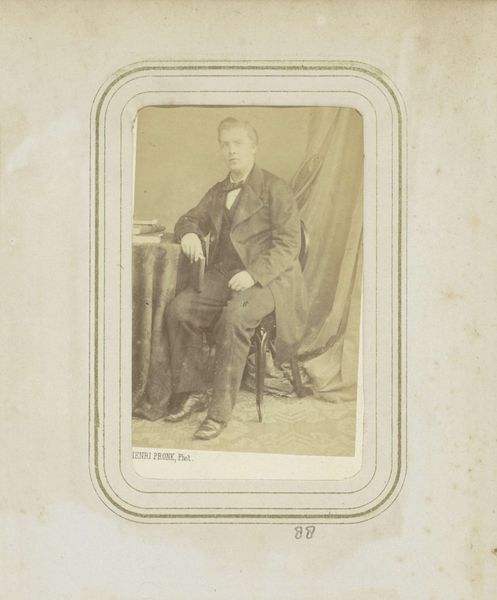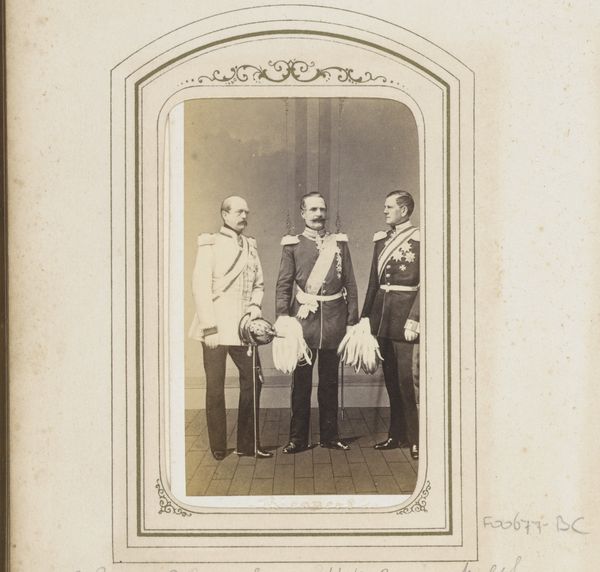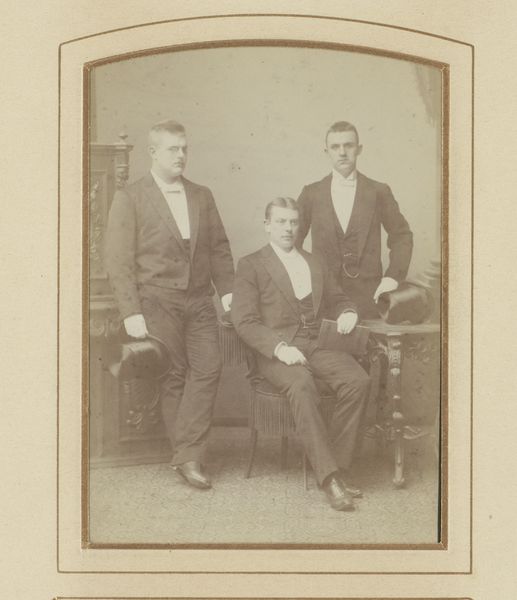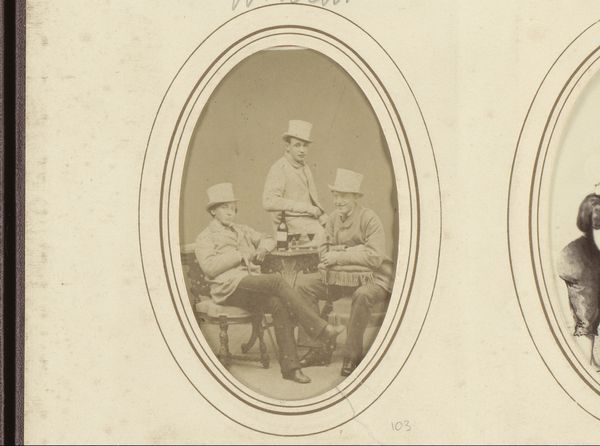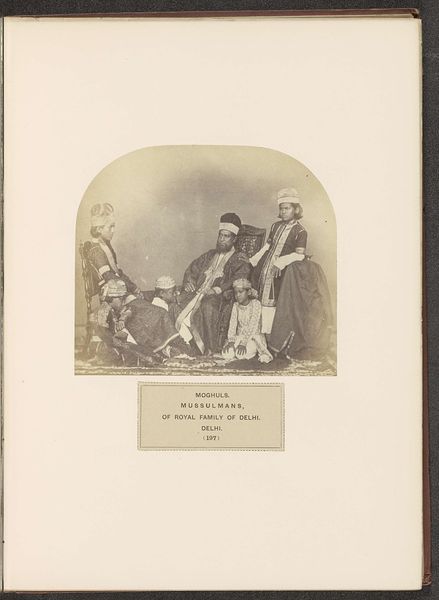
photography
#
portrait
#
photography
#
group-portraits
#
realism
Dimensions: height 85 mm, width 52 mm
Copyright: Rijks Museum: Open Domain
Henri Blanckart captured this carte-de-visite depicting three young boys sometime between 1860 and 1890. During this period, photography became a powerful tool for constructing and reinforcing social identities. This portrait, with its formal composition and carefully arranged subjects, reflects the values and aspirations of the bourgeoisie, eager to display their status through visual representation. But look closer, what can we say about these boys? There’s the clear class distinction displayed through clothing. One boy, wearing a full suit, rests his hand on the shoulder of another, who is seated and dressed in lighter colored clothing, suggesting he may be an invalid. The third is dressed in a simple white suit. These small portraits, easily reproduced and shared, served as a means of circulating particular ideals of masculinity and family, while also subtly revealing the hierarchies within. The seemingly innocent image opens up questions about representation, power, and the silent stories embedded within the photographic frame.
Comments
No comments
Be the first to comment and join the conversation on the ultimate creative platform.
